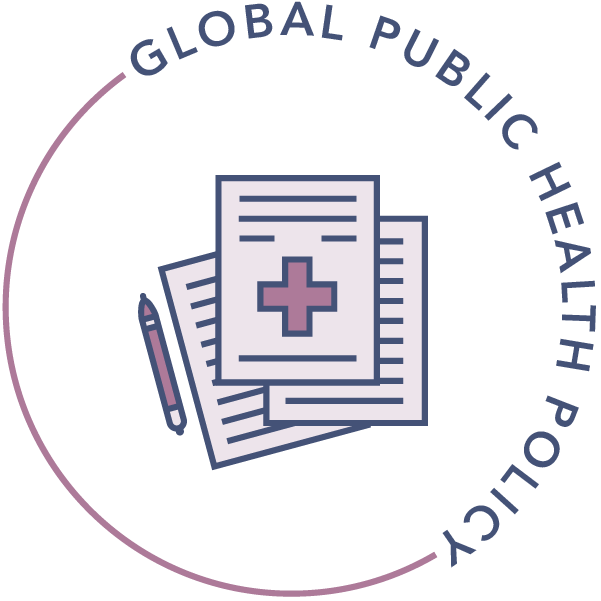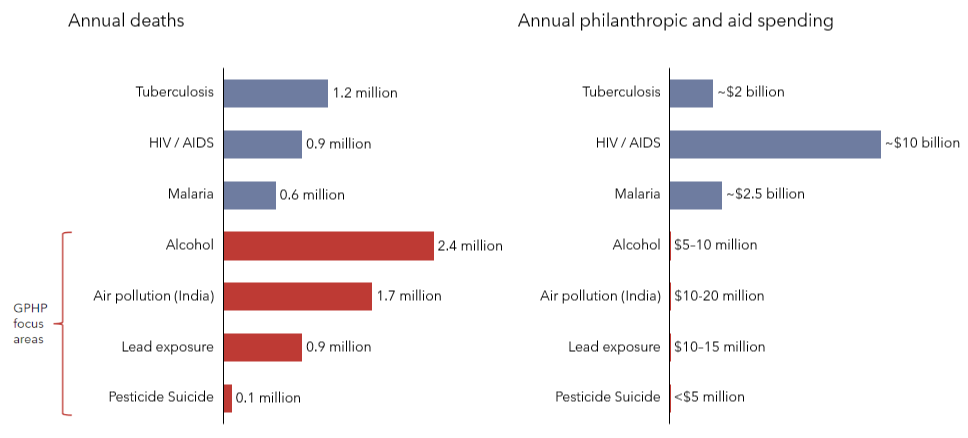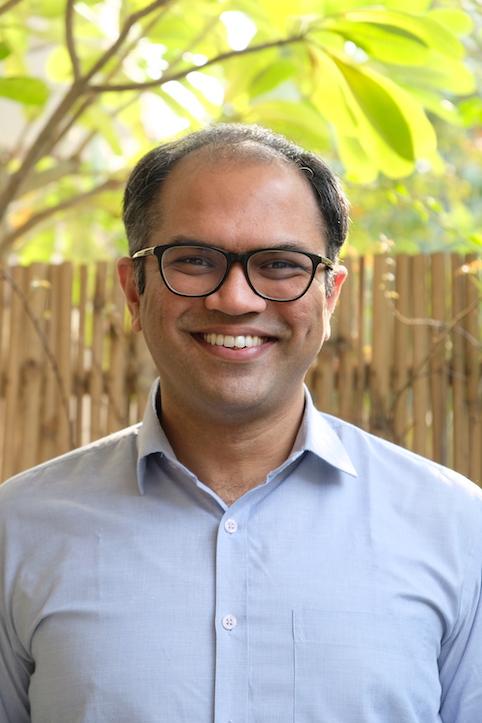Some of the world’s worst health issues can be addressed through public policy.

Global Public Health Policy
We support work on policies that cost-effectively address major public health issues.
Historically, policies like air quality regulations, tobacco taxes, and the elimination of leaded gasoline have saved or improved millions of lives.
These policies typically improve public health by addressing risk factors to alleviate the burden of non-communicable disease, which comprises a growing share of the health burden but receives relatively few resources. Policy interventions affect entire populations and are often cost-effective for governments to implement. We think philanthropy can have an outsized impact by helping governments design, implement, and enforce more effective public health policies.
Because the benefits are diffuse, and responsibility for addressing them can cut across government departments and disease categories, many problems that are addressable through public health policy are currently neglected.
The chart below shows how little funding goes to address our current global public health policy focus areas relative to their estimated burden:

- South Asian air quality. South Asia experiences some of the world’s highest levels of air pollution, with average levels of PM2.5 roughly ten times higher than WHO guidelines in many countries. An estimated 2.1 million people die from air pollution each year in South Asia, comprising ~3% of all global disability-adjusted life years. Several countries have made substantial progress in addressing the harms of air pollution, but the burden remains much higher in South Asia than in most high-income countries. Our grantmaking so far has focused on supporting policies to improve air quality through direct governance support, research and data collection to improve our understanding of the problem (such as rural air quality monitoring), and interventions to address specific sources. Since launching our South Asian Air Quality program in 2022, we have made over 20 grants and allocated over $16 million dollars. Our initial funding has focused on India, but we hope to expand to other countries in the future. You can read more about our work on air quality here.
- Lead exposure. One in two children living in low- and middle-income countries are estimated to have blood lead levels exceeding 5μg/dL. At the peak of the crisis in Flint, Michigan, the equivalent number was one in twenty. We think there is compelling evidence that lead exposure leads to worse outcomes for both cognition and mortality. Estimates of the burden vary widely. The Global Burden of Disease estimates that lead exposure causes 900,000 deaths per year, mostly from cardiovascular disease; a more recent World Bank analysis suggests 5.5 million deaths. Despite the large burden, the Center for Global Development was only able to identify $11 million per year in philanthropic funding to address lead exposure in low- and middle-income countries. Our grantmaking to date has included efforts to identify sources of lead exposure, address particularly tractable sources like spices and paint, and raise the salience of lead exposure as a priority issue.
- Suicide prevention through means restriction. Approximately 760,000 people each year die by suicide. Methods of suicide vary regionally depending on availability. In rural agricultural communities, deliberate ingestion of pesticides is among the most common methods, estimated to account for 110,000-168,000 deaths each year. We believe there is compelling evidence that selectively restricting access to the most toxic pesticides can dramatically reduce the overall suicide rate (with the most likely mechanism being people substituting less toxic pesticides in suicide attempts, reducing case fatality). We provided funding to launch the Centre for Pesticide Suicide Prevention — which is, to our knowledge, the only organization focused on reducing the suicide rate by restricting access to highly hazardous pesticides.
- Alcohol policy. An estimated 2.4 million people each year die from excessive alcohol consumption. While the burden is larger in richer countries, it is rising in low- and middle-income countries as alcohol becomes increasingly affordable. While we are not currently investigating new grantees working on alcohol policy, we currently support this area by funding RESET Alcohol, a consortium of organizations working to help design better alcohol policies.
The first three topics are our current focus for new grantmaking. In the future, we may explore other large health burdens addressable through public health policy.
This program is still in its early stages, but we’re excited about the impact of the grantees we support. Policy impacts of our grantees include contributing to deregistration of pesticides commonly used in suicide in several countries and states, establishing the impact of removing lead from spices in Bangladesh, and helping to reduce the prevalence of lead in paint in Malawi.




